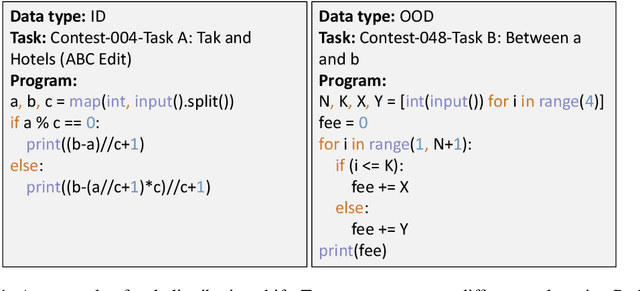CodeS: A Distribution Shift Benchmark Dataset for Source Code Learning
Paper and Code
Jun 11, 2022



Over the past few years, deep learning (DL) has been continuously expanding its applications and becoming a driving force for large-scale source code analysis in the big code era. Distribution shift, where the test set follows a different distribution from the training set, has been a longstanding challenge for the reliable deployment of DL models due to the unexpected accuracy degradation. Although recent progress on distribution shift benchmarking has been made in domains such as computer vision and natural language process. Limited progress has been made on distribution shift analysis and benchmarking for source code tasks, on which there comes a strong demand due to both its volume and its important role in supporting the foundations of almost all industrial sectors. To fill this gap, this paper initiates to propose CodeS, a distribution shift benchmark dataset, for source code learning. Specifically, CodeS supports 2 programming languages (i.e., Java and Python) and 5 types of code distribution shifts (i.e., task, programmer, time-stamp, token, and CST). To the best of our knowledge, we are the first to define the code representation-based distribution shifts. In the experiments, we first evaluate the effectiveness of existing out-of-distribution detectors and the reasonability of the distribution shift definitions and then measure the model generalization of popular code learning models (e.g., CodeBERT) on classification task. The results demonstrate that 1) only softmax score-based OOD detectors perform well on CodeS, 2) distribution shift causes the accuracy degradation in all code classification models, 3) representation-based distribution shifts have a higher impact on the model than others, and 4) pre-trained models are more resistant to distribution shifts. We make CodeS publicly available, enabling follow-up research on the quality assessment of code learning models.
 Add to Chrome
Add to Chrome Add to Firefox
Add to Firefox Add to Edge
Add to Edge